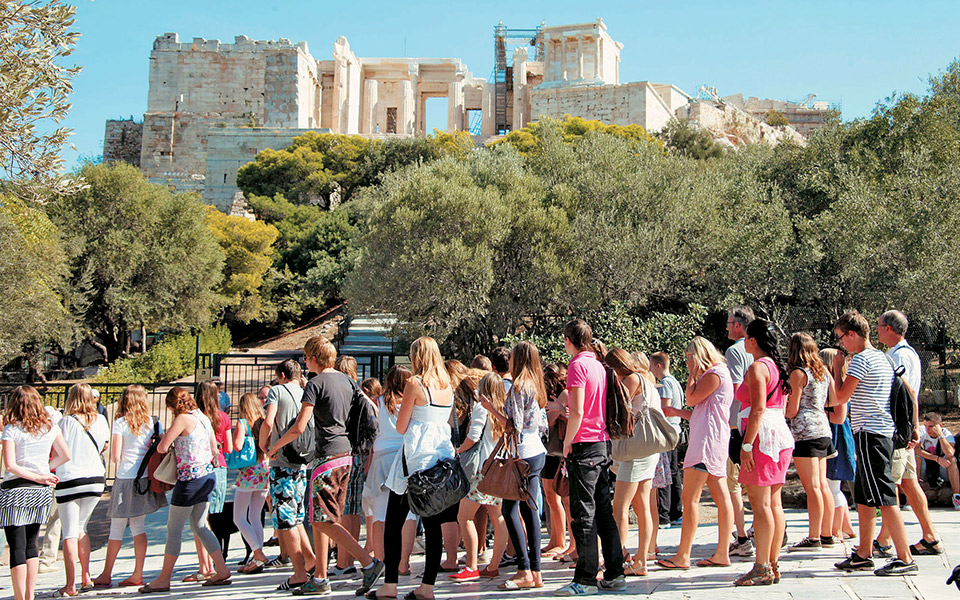Athens, an oppressive city

The other night, I was noticing the crowds of foreign tourists in Athens. Areas between Monastiraki and Syntagma were packed, and I had to jostle through crowds on the sidewalk. The restaurants on Mitropoleos Street were packed.
Some of those tourists may like to visit the Acropolis or the Ancient Agora on Thursday and to do so at midday. Sure, it’s a tough time of day to do that sort of thing in the summer, but maybe that’s how it fits into their schedule, or maybe they’re 20 years old and aren’t too bothered by the heat.
As paradoxical as it may sound given Greece’s history, Athens does not do well when it comes to freedom. There is more government in places where it is not needed, and less government in places where it is needed. There is a prevailing distortion of boundaries.
The Ministry of Culture has ordered archaeological sites to remain closed from 1 to 5 p.m. because of high midday temperatures. It claimed that this was a precautionary measure. A precaution against what? Someone fainting? Or maybe the ministry being pressured by the unions?
You can be sure that staff working at archaeological sites will be having a siesta from 1 p.m. to 5 p.m. Nevertheless, any foreign tourists who want to spend some time at those sites have been forbidden and must simply change their plans.
This simply does no make sense. Sites will be closed at 4.30 p.m. but open again half an hour later when there’s no big difference in temperature. Not to mention that tourists will be forced to walk up and down the blazing-hot Adrianou Street between Thiseio and Monastiraki, unable to wander through the greenery of the Ancient Agora, because the temperature is “too high” and the Greek state has locked them out so that its employees can take a paid siesta.
On the metro system, meanwhile, display panels show constant delays in trains. What do you expect? It’s summer in Athens and things slow down. You see tourists waiting around with their luggage to get to the airport, or to travel just two or three stations away. They could be going from Omonia to Acropolis, for example. And rather than putting our best foot forward to improve our services with efficiency, safety and a smile, we remind them that they are on the border of Europe.
On which side is not clear, but tourists find themselves on a cusp where anything can happen – such as walking down Ermou, the capital’s most commercial street, and hearing almost daily protests against shops opening on Sundays.
The only thing that doesn’t take long to happen in Greece is the reminder that logic seldom comes to visit.



